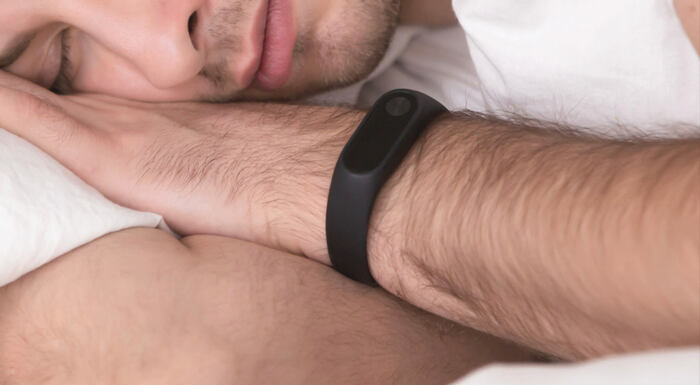Enlarge image
Two studies from the USA and Norway examined the effects of a Covid 19 vaccination on the female cycle
Photo: Thais Varela / Stocksy United
For many women it is normal, for others it is a reason to get nervous: the period starts earlier or later than expected, bleeding occurs between periods or menstruation stops altogether.
The female menstrual cycle often reacts sensitively to influencing factors such as stress, too little sleep or illness and may give indications that something is wrong.
Some women were all the more concerned when they observed a change in their cycle after being vaccinated against Covid-19.
They shared reports on social media that their periods were heavier than usual, with many starting later than usual.
The vaccine studies did not collect data on the female menstrual cycle, but reports of such side effects increased.
Cycle disruptions were also reported to the Paul Ehrlich Institute (PEI), which is responsible for monitoring the Covid 19 vaccines in Germany.
In the safety report from last August, the institute goes into more detail about the reported complaints.
However, the topic no longer appears in the more recent safety reports.
By July 31, 2021, a total of 310 women reported having noticed menstrual irregularities after their corona vaccination. The PEI wrote in August: "Taking into account the number of vaccinated women in the relevant age groups and the frequency of menstrual disorders, the number of reports does not appear to be unusually high, although it can be assumed that many, particularly temporary menstrual disorders, are not reported." Possible explanations for this are that many people do not know that they can report vaccination reactions to the PEI themselves (here) - or that women did not associate their cycle with the vaccination at all.
Two current observational studies have now come to the conclusion that many women actually have menstrual disorders after the Covid 19 vaccination, but these are short-lived and compared to natural menstrual cycle fluctuations they are minor deviations that can occur once after the vaccination .
In a US cohort study, the data of 3,959 women between the ages of 18 and 45 who recorded their cycle with the app "Natural Cycles" were compared.
Data was collected between October 2020 and September 2021.
Of the participants, 2403 were vaccinated and 1556 were unvaccinated.
55 percent of those vaccinated had received the Biontech/Pfizer vaccine, 35 percent the Moderna vaccine and 7 percent the Johnson & Johnson preparation.
Women vaccinated with AstraZeneca's drug were not included in the study.
Delay in menstruation by about a day
The women recorded a normal cycle length of between 24 and 38 days for three months prior to their first vaccination.
A further three cycles were then observed, and a total of six cycles were also included in the unvaccinated subjects.
In the vaccination group, it turned out that the women's cycle was delayed by a little less than a day after the vaccination: after the first dose, there was a delay in menstruation by an average of 0.7 days, after the second vaccination by 0.9 days . The unvaccinated participants, on the other hand, did not notice any changes compared to their previous three cycles. There were no relevant changes in menstrual length in either group.
358 women received their second vaccine dose in the same cycle as the first.
Their periods started more than two days later than in previous cycles.
In around ten percent of them, menstruation was even postponed by at least eight days.
In the sixth observation cycle, however, the disturbances had leveled off again - there were no longer any differences to the group of unvaccinated people.
The study authors note that because of the vaccination, the women may have monitored their cycles more closely than usual. Natural cycle fluctuations may thus have been perceived as worrisome, even though they only happened by chance after the vaccination. Nevertheless, the research team emphasizes that the analysis noticed clinically relevant changes, especially in the group of women who received both vaccine doses within one cycle.
As a possible explanation for the menstrual fluctuations, the scientists say that mRNA vaccines provoke a strong immune response.
"This could temporarily affect the hypothalamic-pituitary-ovarian axis," they write in the study.
This axis between certain regions in the brain, the central nervous system and the ovaries controls the female hormones that determine the monthly menstrual cycle.
If the vaccination was given to a woman in the first phase of her cycle – during the follicle maturation – the desired immune reaction caused by it as a stress factor could easily have messed up the cycle.
"In contrast, an acute, serious illness, with or without sepsis, such as Covid-19, could have catastrophic effects on the function of the hypothalamic-pituitary-ovarian axis," the authors write -- "sometimes permanently."
A second study from Norway, published as a preprint, came to similar conclusions.
5,688 women between the ages of 18 and 30 were asked whether they had noticed menstrual changes before and after each vaccination.
The high number of women who reported fluctuations even before the first vaccination showed that menstrual cycle disturbances are quite normal: 38 percent of the participants reported at least one irregularity in their cycle before the corona vaccination.
After the first dose, 39 percent of the women said they had noticed fluctuations, after the second dose it was 41 percent.
Most women reported heavier bleeding than usual. Two out of three women who experienced heavier menstrual bleeding after the first dose reported the same after the second dose.
In contrast to the US study, around 60 percent of the women surveyed in the Norwegian study took hormonal contraceptives.
These can also affect the female menstrual cycle, usually making it a bit more regular than it would be without hormones.
The cycle soon settled down again for those surveyed in Norway – after two months at the latest.
After Covid infection: reduced number and quality of sperm
Victoria Male, an expert in reproductive medicine at Imperial College London, comments on the study results in the British Medical Journal. She notes that the British regulatory authority MHRA - similar to the PEI - currently sees no knowledge of a connection between Covid 19 vaccinations and cycle disorders. "From a scientific point of view, it is now important to consider the mechanisms responsible for cycle disturbances after vaccination," writes Male in a paper. Furthermore, one must find out whether certain groups have an increased risk of being affected by menstrual disorders.
"Many people are concerned about this issue because misinformation continues to spread that vaccination can cause infertility," says Male.
There is already data showing that this is not the case.
However, further studies on this topic are needed.
“These should also include that there is already data that the number and quality of sperm can be reduced after a Covid 19 infection,” said Male.
Overall, a deeper understanding of how both vaccination and COVID-19 disease can affect fertility is needed.








